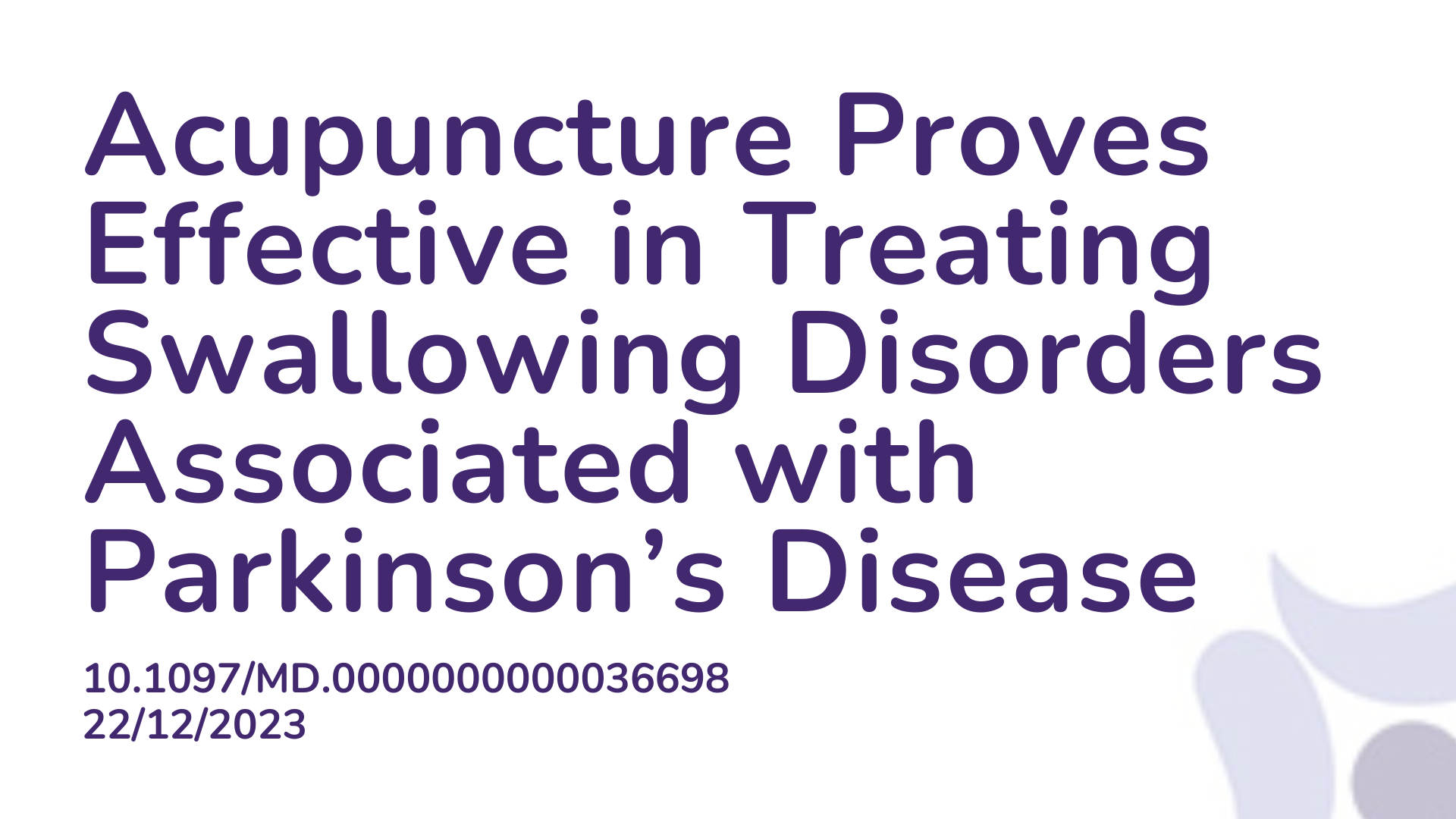Summary:
Parkinson’s disease (PD) falls within the spectrum of “tremor syndrome” and “spasmodic syndrome” in traditional Chinese medicine. This ailment affects the meridians and can impact various organs such as the liver, kidney, and spleen, particularly in the elderly, posing a significant threat to the well-being of middle-aged and older individuals. Beyond the characteristic motor symptoms like tremors, PD patients also experience swallowing disorders (dysphasia). Research indicates that the prevalence of dysphagia in PD patients ranges from 18.5% to 82% and can significantly impact drug and nutrient intake, diminishing drug efficacy, lowering nutritional levels, and cause dehydration. In recent years, acupuncture has been used in addressing swallowing disorders secondary to PD, however despite the increasing volume of clinical literature, rigorous systematic analysis and high-quality studies are crucial to validate its efficacy. This meta-analysis aimed to assess the therapeutic impact of acupuncture on PD-related dysphagia. A total of 466 patients were enrolled, from seven studies. The results showed that acupuncture exhibits a distinct therapeutic impact on dysphagia in patients with PD.
Abstract:
Objective: To systematically evaluate the therapeutic effect of acupuncture on dysphagia in patients with Parkinson disease (PD).
Method: We searched CNKI, WF, VIP, CBM, Cochrane Library, and Web of Chinese Biomedical Literature Randomized controlled trials on the efficacy of acupuncture in the treatment of dysphagia in patients with PD was retrieved from Science, Embase, and PubMed databases from establishment to October 2022. Outcome indicators included clinical efficacy, swallowing function, hemoglobin, and serum albumin. Literature screening and data extraction of included literature were conducted independently by 2 reviewers, and literature quality was evaluated according to the standards of the Cochrane Collaboration network. Data analysis was performed using Review Manager 5.3 and Stata14.0 software.
Results: 466 patients were included in 7 literature, 234 in the observation, and 232 in the control groups. The results of the meta-analysis showed the clinical efficacy in the observation group [odd ratio = 0.25, 95% confidence interval (95%CI) (0.15, 0.40), P < .01]. Swallowing function [standardized mean difference (SMD) = −0.96, 95%CI (−1.24, −0.68), P < .01]; hemoglobin index level [SMD = −0.72, 95%CI (−1.25, −0.20), P < .01]; serum albumin index level [SMD = −1.25, 95%CI (−2.19, −0.31), P < .01].
Conclusion: Acupuncture has a specific curative effect on dysphagia in patients with PD, and the therapeutic effect is more significant than that in the control group, which can improve the dysphagia function and nutrition level in patients with PD more effectively.
Article Publication Date: 22/12/2023
DOI: 10.1097/MD.0000000000036698



